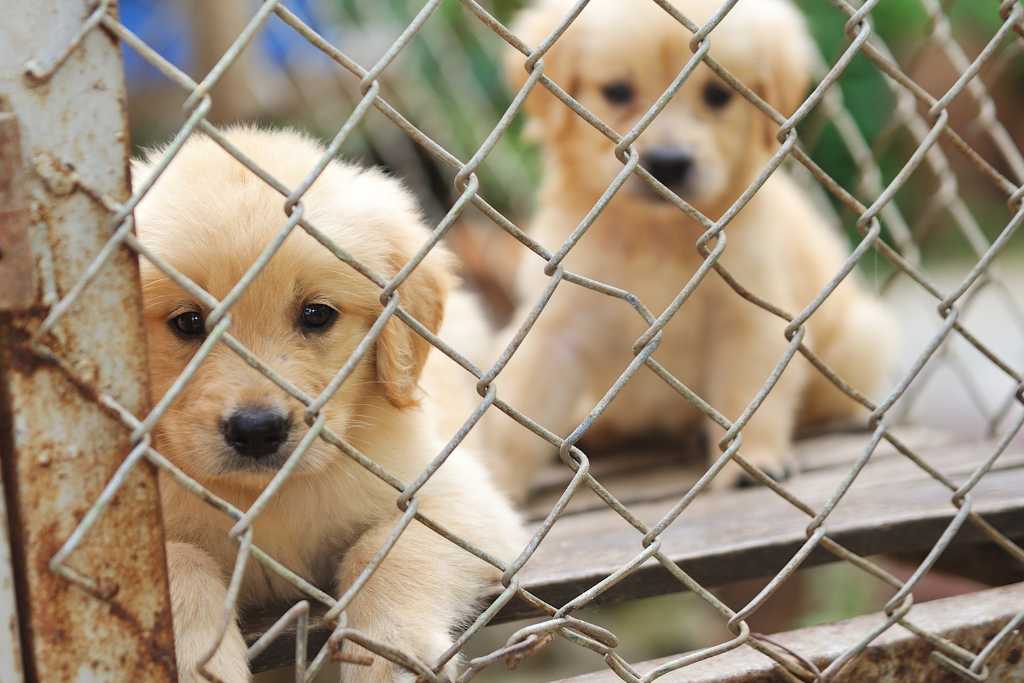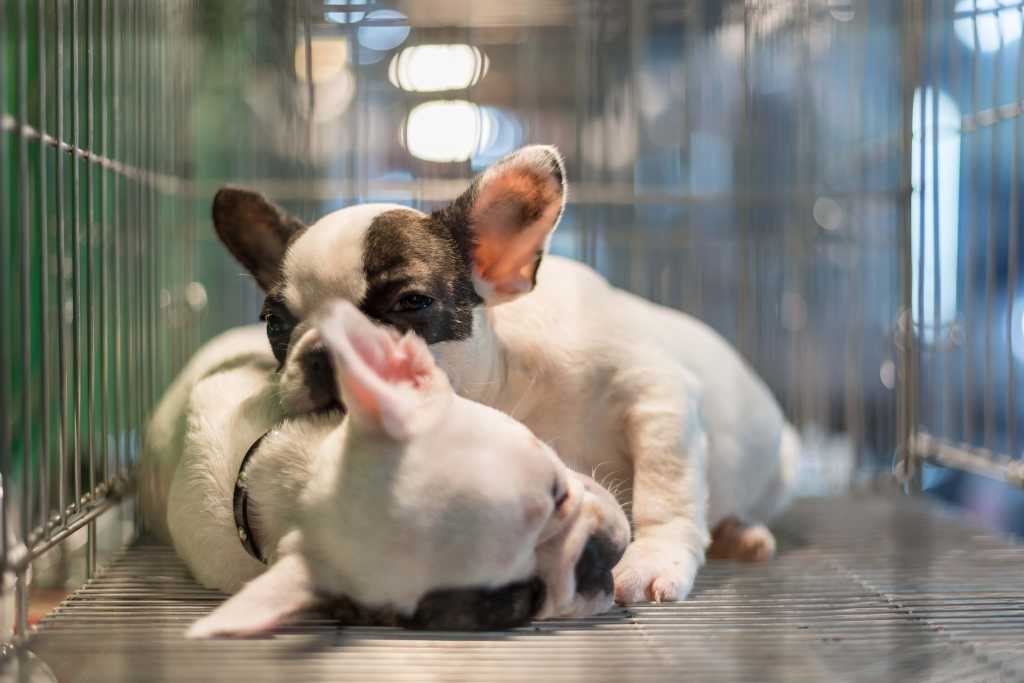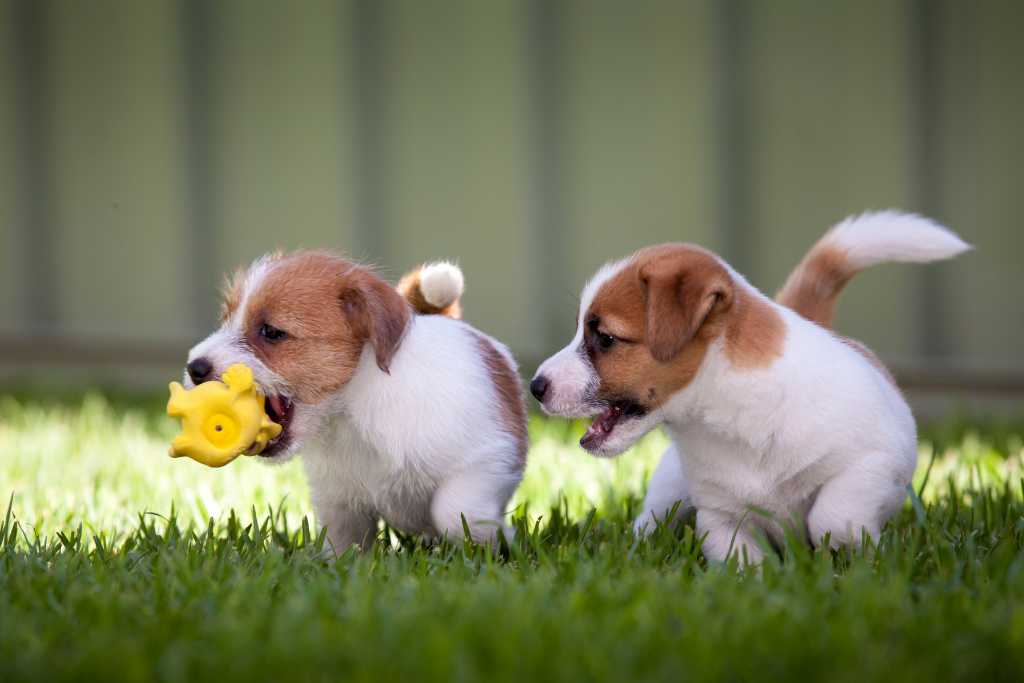MORE TO SHIP FREE 🚚
NICE. SHIPPING IS FREE 🎉
MORE TO REDEEM GIFT 🎁
YAY. REDEEM A FREE GIFT 🥳
YOUR CART IS EMPTY. SHOP NOW.
In the world of companion animals, the heartwarming image of a playful puppy can often mask a darker reality: the existence of puppy mills. The term “puppy mill” is a term used to describe a commercial dog breeding facility. These breeding facilities, often driven solely by profit, prioritise quantity over quality, resulting in deplorable conditions for the animals involved. The primary focus of puppy mills is to produce a large volume of puppies to meet market demand, usually for pet stores, online sales, or other outlets.This article aims to shed light on the distressing world of puppy mills, exploring their impact on canine welfare, the ethical implications of their practices, and the urgent need for widespread awareness and change.

Puppy mills are known for maintaining substandard and often inhumane conditions for breeding dogs and their puppies. While conditions can vary, several typical features are associated with puppy mills.
Overcrowding
Puppy mills often prioritise quantity over quality, resulting in overcrowded facilities where dogs are kept in cramped and unsanitary conditions. The lack of space contributes to stress and can lead to various health and behavioural issues.
Inadequate Veterinary Care
Puppy mills often cut corners on medical expenses, leading to untreated health problems, including infections, injuries, and genetic conditions.
Poor Nutrition
Dogs in puppy mills may receive inadequate and low-quality nutrition. Proper nutrition is crucial for the health and well-being of breeding dogs and their offspring, and the lack thereof can result in a range of health issues.
Lack of Socialization
Puppies in puppy mills are often deprived of essential socialisation experiences during their formative weeks. Lack of interaction with humans and other animals can contribute to behavioural problems, including fear, anxiety and aggression.
Limited Human Interaction
Breeding dogs in puppy mills may have minimal contact with humans. Lack of socialisation can lead to a lack of trust and bonding between the dogs and their human caregivers.
Breeding Dogs Kept in Cages
In puppy mills, breeding dogs are often confined to small, wire cages for extended periods. This confinement can lead to physical and psychological distress, as dogs lack the space to move around or exhibit natural behaviours.
Continuous Breeding
Puppy mills prioritise frequent and continuous breeding to maximise profits. This practice can lead to exhaustion and health issues for the breeding dogs, as they may not receive adequate time to recover between litters.
Lack of Exercise
Dogs in puppy mills may lack access to proper exercise, contributing to physical health problems and obesity. Adequate exercise is essential for maintaining a dog's overall well-being.
Unsanitary Conditions
Puppy mills often fail to maintain proper hygiene standards. Accumulation of waste, inadequate cleaning practices, and untreated illness can create unsanitary conditions that pose health risks to the dogs.
Absence of Enrichment
Dogs thrive on mental stimulation and enrichment. Puppy mills typically lack the resources and practices needed to provide toys, mental challenges, and a stimulating environment for the dogs.
In response to increased scrutiny on pet stores for the sale of puppies, puppy mills and brokers have adapted by transitioning to online platforms. This strategic move allows them to optimise their profits by directly selling to consumers through digital channels.
These websites are deceptively welcoming, presenting an array of puppies, often encompassing both purebred and mixed-breed pups adorned with cute costumes and props. Often, the websites come with a cautionary message - "Avoid scams and puppy mills” - to assert that their breeders are reputable, assuring prospective buyers that they are making a valuable investment in a healthy, well-cared-for puppy. Despite these promising assurances, the stark reality often contradicts these claims. Behind the appealing façade, many puppies sourced through such channels originate from less-than-ethical breeding practices. The alluring images and persuasive language can mask the harsh truth – that the puppies may have been bred in substandard conditions, lacking proper care and attention to their well-being. The apparent contradiction between the presented image and the actual conditions highlights the deceptive nature of these practices, emphasising the need for heightened awareness and thorough research when considering the purchase of a new furry friend.

Genuine and responsible breeders, who are deeply passionate about their chosen breeds, would never consider selling their puppies online to any arbitrary individual with a credit card. Their commitment extends to the well-being of their dogs. Their breeding dogs receive excellent care, are not subjected to overbreeding, and typically reside in homes rather than kennels or cages. Breeders actively participate in the upbringing of the puppies, taking the time to understand each one's temperament and carefully matching them with suitable families. Considerable effort and attention are invested in the planning and raising of each litter, ensuring that puppies are not mass-produced. As such, reputable breeders may not always have puppies available immediately, and getting a puppy from a breeder may require going on their waiting lists. These breeders will often pose numerous questions to prospective buyers to ensure the best possible homes for their pups. Breeders might inquire about your experience with the breed and your plans for veterinary care, especially crucial for breeds prone to chronic health issues before agreeing to releasing their puppies. These discerning questions from responsible breeders serve not only to find the right homes for their puppies but also to ensure that potential owners are equipped to meet the specific needs of the chosen breed.
Remember that thorough research and due diligence are essential when looking for a new puppy. Consider adopting from reputable shelters or choosing breeders who prioritise the health and well-being of their animals over profit.
Limited Information
Reputable breeders are usually transparent about their breeding practices, providing detailed information about the puppy's parents, health records, and living conditions. Lack of information or evasive answers may indicate a less reputable source.
Unwillingness to Answer Questions
A reputable breeder welcomes questions about their breeding practices, the puppy's health, and the parent dogs. If the breeder avoids answering questions or seems reluctant to provide information, be cautious.
No Screening or Interview Process
Responsible breeders usually inquire about the potential owner's living situation and ability to care for the puppy. If the breeder does not ask questions or expresses no concern about the puppy's future home, it raises suspicions.
No Health Guarantee
Reputable breeders often provide a health guarantee, assuring buyers that the puppy is free from genetic disorders for a certain period. If the breeder does not offer any health guarantee, it may be a cause for concern.
Transaction Occurs in Unusual Locations
If the breeder insists on completing the transaction in a location other than where the puppies are raised, it could be an attempt to conceal poor living conditions or other issues.
Multiple Breeds Available
Puppy mills often focus on mass production and profit, resulting in facilities with numerous breeds available. Responsible breeders typically specialize in one or a few breeds to ensure proper care and attention.
No Interaction with Parents
In a responsible breeding environment, potential buyers have the opportunity to interact with the puppy's parents. If the breeder refuses or is unable to let you meet the puppy's mother at the very least, it could be a sign of a puppy mill.
Inadequate Living Conditions
Puppies from puppy mills often show signs of poor living conditions. If the breeder is unwilling to allow you to visit the facility or if you notice overcrowded and unsanitary conditions, it may be a red flag.
Distribution Channels
Puppies from puppy mills are commonly sold to pet stores, online sellers, or brokers who then sell them to unsuspecting consumers. This often perpetuates the cycle of demand and supply, supporting the profitability of puppy mills.
At Good Dog People, we are advocates of adopting your furry friend. The abandoned dogs out there need your help and a home. If expanding your family to include a four-legged companion is on your mind, we encourage you to explore the option of adoption. It's evident that puppy mills persist due to the ongoing demand for adorable puppies from the public. Appreciating the charm of cute puppies is perfectly natural, but it's crucial to address the issue of these illicit breeding grounds. Stopping puppy mills requires a multifaceted approach involving awareness, education, legislation, and responsible consumer choices. As individuals, we can all play our part by being responsible consumers and owners, helping to create a society that prioritises the welfare of animals and values responsible breeding practices.

Ensuring a puppy has a good life involves providing love, care, and a nurturing environment.
Research Breeds
Before getting a puppy, research different breeds to find one that matches your lifestyle, energy level, and living situation. Each breed has unique characteristics and requirements.
Consider Adoption
Consider adopting from shelters or rescue organisations. Many wonderful puppies and dogs are in need of loving homes, and adoption may help to reduce the demand for puppies from puppy mills in the long run.
Choose Responsible Breeders
If you decide to go through a breeder, choose one who is reputable and ethical. Responsible breeders prioritise the health and well-being of their dogs, conduct health screenings, and provide proper care for the puppies.
Prepare Your Home
Puppy-proof your home by removing potential hazards, securing loose cords, and creating a safe space for the puppy. Provide a comfortable bed, toys, and necessary supplies like food and water bowls.
Regular Veterinary Care
Schedule regular veterinary check-ups to ensure your puppy receives necessary vaccinations, preventive care, and screenings for potential health issues. Consult with your veterinarian about spaying or neutering at the appropriate age.
Proper Puppy Nutrition
Feed your puppy a balanced and nutritious diet suitable for their age, breed, and size. Puppies need puppy food to support their growth and here are some options for your consideration:
If unsure, consult your veterinarian for guidance on the best food options and feeding schedule. At Good Dog People™, we understand that it's hard for new doggy parents to find stuff that suits your pups in most big-box chains or online pet stores. So, we have a scheme called PSP (Puppy & Senior Privilege) designed to help you find puppy products and we are offering 5% OFF on all these puppy items.
Training and Socialization
Start training early to teach basic commands and establish positive behaviour. Socialise your puppy with various environments, people, and other animals to promote well-adjusted behaviour.
Regular Exercise
Provide ample opportunities for physical exercise. Puppies have high energy levels and need regular playtime, walks, and other activities to keep them mentally and physically stimulated.
Quality Time and Attention
Dedicate quality time to bond with your puppy. Offer affection, attention, and play regularly. Building a strong bond fosters a sense of security and trust.
Mental Stimulation
Engage your puppy's mind with puzzle toys, nosework toys, interactive games, and training sessions. Mental stimulation is crucial for a puppy's cognitive development and helps prevent boredom.
Grooming and Hygiene
Establish a regular grooming routine based on your puppy's breed and coat type. Brush their fur, trim nails, clean ears, and introduce them to bathing to maintain good hygiene. Use products created for puppies - puppy teeth cleaning gel, puppy shampoo, puppy comb, and others as adult products may be too harsh for puppies.
Provide a Safe Environment
Create a safe and secure environment for your puppy. Use gates or crates when needed, and ensure the surroundings are free from potential dangers. Be patient and understanding as your puppy learns and grows. Positive reinforcement and consistent training contribute to a well-behaved and happy adult dog.
Love and Companionship
Above all, shower your puppy with love, affection, and companionship. Dogs thrive on the emotional connection with their owners, and a supportive, loving home is the foundation for a fulfilling and happy life.

The plight of animals in puppy mills demands urgent attention and action. Before embarking on the journey of bringing a puppy into your life, arm yourself with knowledge about the existence and consequences of puppy mills. We can collectively advocate for ethical breeding practices, raise awareness, and work towards comprehensive legislative changes that prioritise the well-being of our four-legged companions. By making informed choices and supporting responsible breeding practices, we can help to contribute to the well-being of these animals and create a world where every puppy is given the love, care, and consideration they deserve. Only through concerted efforts can we pave the way for a better future for these dogs.

Comments will be approved before showing up.
A practical guide to dog anxiety. Learn how stress and anxiety affect dogs, how to spot the signs, and explore...
Learn the causes of dog itchy paws (allergies, infections, cracks) and effective home remedies including soaks, balms, and diet changes...
Ever seen your dog basking in the sun? It may look like laziness, but dogs love sunbathing for several fascinating...



